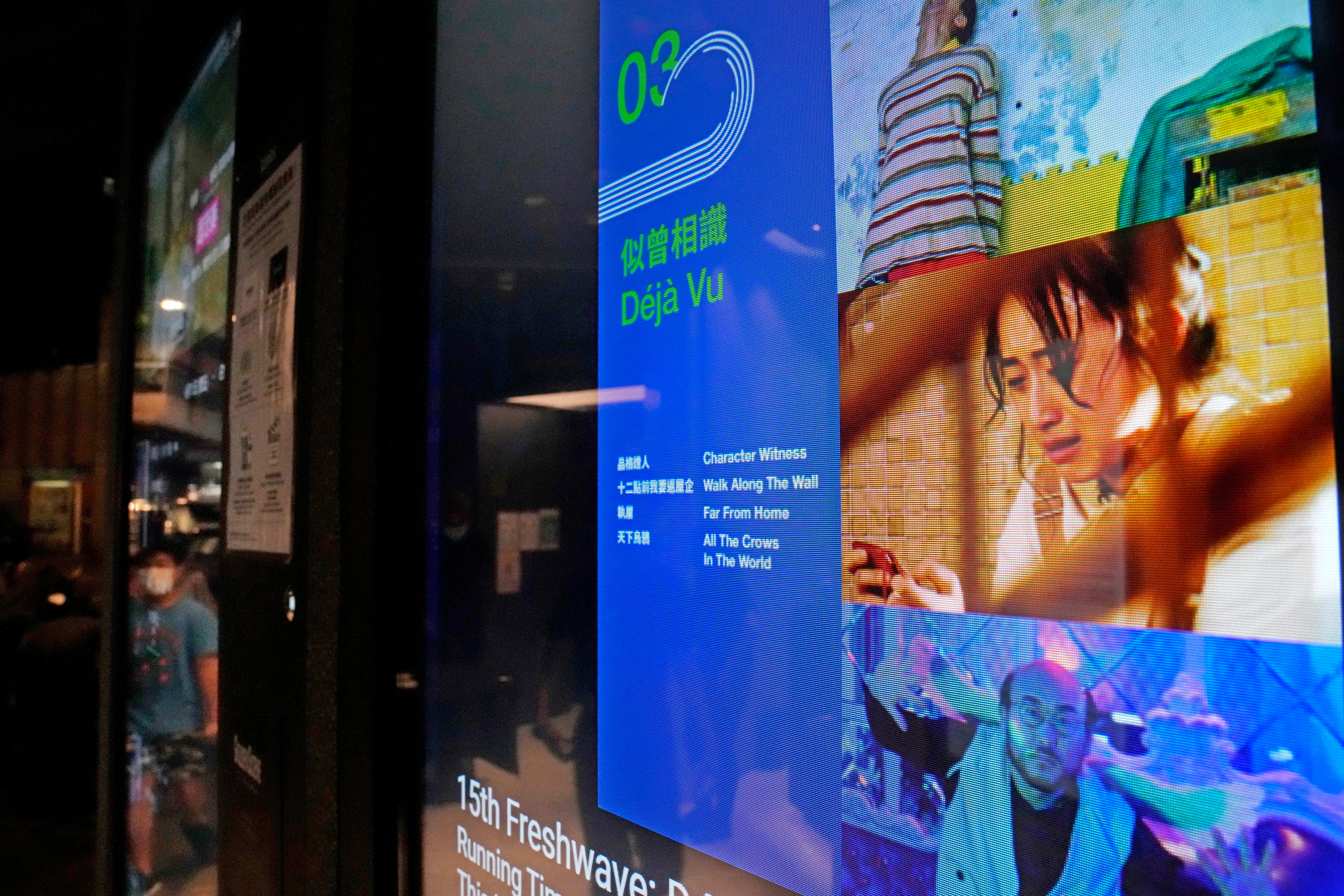Hong Kong to amend law to step up film censorship
Hong Kong authorities say they plan to amend a film censorship law to forbid screenings of movies deemed contrary to national security

Your support helps us to tell the story
From reproductive rights to climate change to Big Tech, The Independent is on the ground when the story is developing. Whether it's investigating the financials of Elon Musk's pro-Trump PAC or producing our latest documentary, 'The A Word', which shines a light on the American women fighting for reproductive rights, we know how important it is to parse out the facts from the messaging.
At such a critical moment in US history, we need reporters on the ground. Your donation allows us to keep sending journalists to speak to both sides of the story.
The Independent is trusted by Americans across the entire political spectrum. And unlike many other quality news outlets, we choose not to lock Americans out of our reporting and analysis with paywalls. We believe quality journalism should be available to everyone, paid for by those who can afford it.
Your support makes all the difference.Hong Kong authorities on Tuesday said they plan to amend a film censorship law to forbid screenings of movies deemed contrary to national security.
The proposed changes to Hong Kong’s Film Censorship Ordinance would step up censorship of movies in the semi-autonomous city, expanding an ongoing crackdown on political dissent that has led to the closure of various pro-democracy organizations and the arrests of dozens of activists.
The amendments would require a censor to determine whether a film contains elements that endanger national security. Older movies that were previously allowed to be screened could also have their approvals revoked on national security grounds.
“We need this provision to cater for circumstances where a film which was created or approved before — but given the new law enacted and the new guidelines issued — there might be chances that we need to reconsider such cases,” Edward Yau, secretary for commerce and economic development, said at a news conference Tuesday.
The changes would apply to films made in Hong Kong as well as those produced elsewhere. Hong Kong's film industry is widely known for directors such as Wong Kar-wai, Tsui Hark, John Woo and Stanley Kwan and actors including Jackie Chan Chow Yun-fat, Jet Li, Tony Leung Chiu-Wai and Maggie Cheung.
Those who violate the ordinance and screen banned movies could face up to three years in jail and a fine of 1 million Hong Kong dollars ($128,400).
The changes to the law, if passed, take the city a step closer to censorship levels in mainland China where authorities have the power to block movies, TV shows and content deemed politically sensitive or contrary to the values of the Chinese Communist Party
Britain handed Hong Kong over to mainland China in 1997 under a “one country, two systems” framework that allowed it freedoms not found on the mainland for 50 years, including free speech, freedom of the press and freedom of expression.
But critics say Hong Kong is fast losing those freedoms after Beijing s imposition of a tough national security law on the city in June last year following months of political strife and anti-government protests in 2019.
The law — which outlaws secession, subversion, terrorism and foreign collusion to intervene in the city’s affairs — has been used to arrest over 100 pro-democracy figures.
Multiple pro-democracy organizations, such as rally organizer Civil Human Rights Front and the pro-democracy Professional Teachers’ Union, have disbanded amid allegations they violated the security legislation.